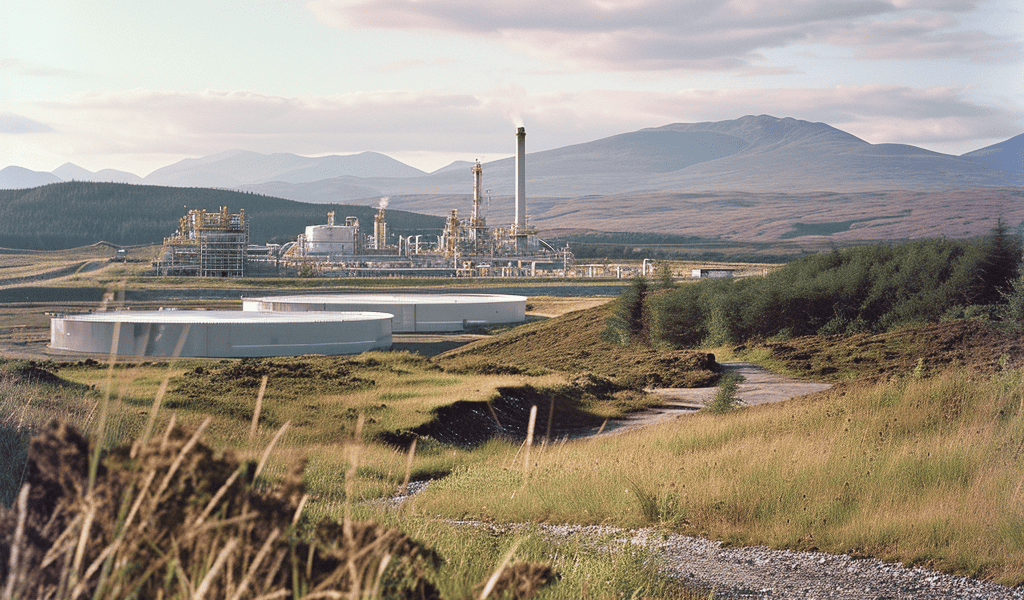Study Raises Concerns Over Using Decommissioned Gas Field in Scotland for Hydrogen Storage
The potential for using a decommissioned gas field in Scotland as a major hydrogen store has been brought into question by a recent study conducted by the University of Aberdeen and the UK Onshore Geophysical Library (UKOGL). The study, led by Professor John Underhill and Malcolm Butler, highlighted concerns over potential leaks and recommended against the field’s usage for hydrogen storage.
The Cousland gas field, located near Dalkeith in Midlothian and decommissioned in the 1960s, was initially considered a potential candidate for large-scale hydrogen storage to support national net zero ambitions. However, the study identified several barriers to its adoption for this purpose, including a lack of evidence regarding the nature of the subsurface sedimentary rocks and the field’s structure.
One of the primary concerns raised by the study is the potential for hydrogen to escape, posing a risk to the local environment and surrounding communities. These findings have been published in the Earth Science, Systems and Society journal.
Professor Underhill, the Director of the University’s Centre for Energy Transition, explained, ‘Hydrogen has been proposed as a possible green energy vector in the transition, but it forms a small, nimble molecule and is very difficult to contain. It can be stored safely in subsurface geological sites, but so far these have largely been limited to man-made hermetically sealed soluble caverns in halite (rock salt) deposits. The absence of salt deposits onshore in Scotland is what has led to the proposal that former and now depleted hydrocarbon fields such as the Cousland gas field could be used.’
However, the study revealed that the Cousland field fails to meet the criteria for safe subsurface storage, raising questions about the feasibility of utilizing decommissioned gas fields for hydrogen storage. Professor Underhill further emphasized, ‘No natural hydrogen has been discovered in any existing onshore or offshore fields in the UK, which raises the question of whether it was once there and leaked, and crucially if it would stay underground if it was injected into a subsurface site.’





